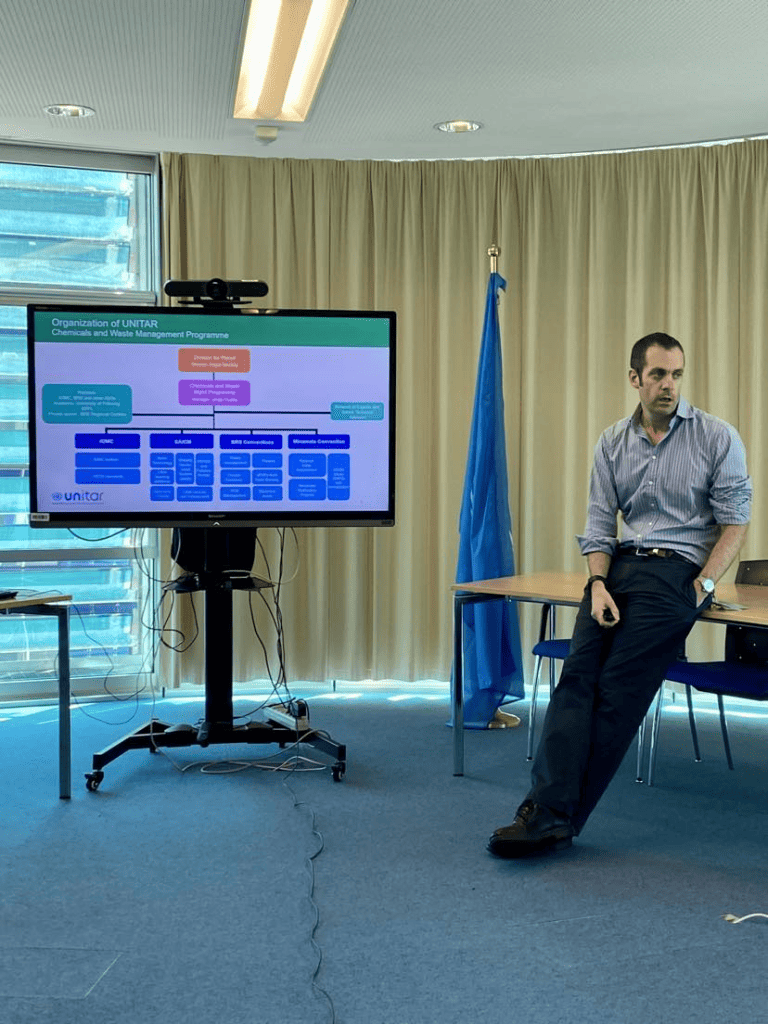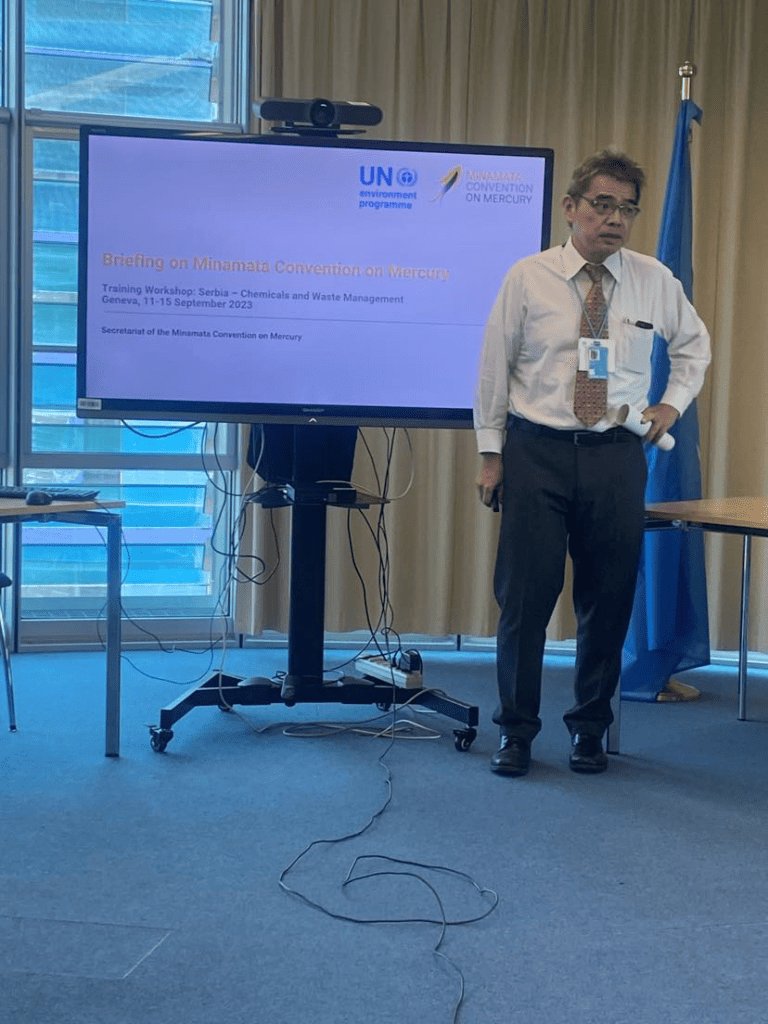As the Project Coordinator for “Full-sized Project to Implement an Environmentally Sound Management and Final Disposal of PCBs in the Republic of Serbia”, UNIDO 100313, GEF 4877, the President of the Institue of Reforms participated in the organization of the unique workshop within a frame of the UNITAR’s Chemicals and Waste Management (CWM) Programme training and capacity building to diverse stakeholders around the world.
Presentations of the resource people could be found on the UNITAR platform to be used by the participants as follow-up knowledge sharing https://chemicalsandwaste.wixsite.com/smc-serbia/nation-policies
General Information about Chemicals
This training package gives basic information on what chemicals are, what are the international conventions relating to chemicals and waste, how the conventions can support countries in safely managing chemicals at various stages of their life cycle, how to prepare a national inventory of chemicals and waste, how to set priorities when implementing the conventions, and also provides general information on the sound management of chemicals and waste.
The following five modules are offered in this training package:
- Chemicals and Conventions
- Chemicals, Wastes and Conventions: The Life-Cycle Approach
- Inventories and Common Approaches
- Priority setting
- Waste Management
Chemicals Related Conventions
Introduction to Basel, Rotterdam and Stockholm Conventions as well as the Minamata Convention
Key Aspects of Chemicals and Waste Management
Within this training package, several courses are offered presenting key aspects related to chemicals and waste management:
- Legislation for Chemicals placed on the Market;
- Enforcement of Chemicals Legislation;
- Risk reduction of Chemicals;
Sustainable Financing of Institutional Capacity for Chemicals Control. For these courses, certificates of completion are available.
Waste Management – (Open Burning of Waste)
The nine training modules on (reducing and preventing of) open burning of waste modules cover the following topics:
1. Best practices in solid waste management to reduce open burning of waste;
2. Practices to prevent open burning;
3. Developing waste management regulations and compliance mechanisms;
4. Preventing abandonment and littering of wastes;
5. BAT/BEP Guidance on the reduction and/or elimination of open air burning of wastes and agricultural residues;
6. The role of the private and informal sectors in waste recycling;
7. Promoting occupational health and safety and hygienic measures at landfill sites;
8. Waste to energy concepts for organic wastes;
9. COVID-19 and the sound management of medical/healthcare waste.
Legal Aspects
This training package contained two courses and two guidelines with an introductory presentation. The two courses are the following:
- Legislation on chemicals placed on the market
- Enforcement of legislation on chemicals placed on the market
and two guidelines on the prosecution of illegal trade of (hazardous) wastes:
- UNEP “Basel Convention Instruction Manual on the Prosecution of Illegal Traffic of Hazardous Wastes or Other Wastes”
- WasteForce “Guidance for prosecutors of waste crime”
Presentation “Introduction to Enforcement and Legislation”, summarizing the two abovementioned guidelines and also providing information on other materials, websites and guidelines to be consulted when involved in the prosecution of illegal traffic of waste and waste crime.
The course: Legislation on Chemicals Placed on the Market contains the following four modules: Why legislation is important, Chemicals legislation and related pieces of legislation, Placing obligations in primary and secondary legislation, and Main content of a chemicals law (content of legislation for chemicals placed on the market).
The course Enforcement of Legislation on Chemicals Placed on the Market has the following eight modules: Why is enforcement necessary?, Roles and responsibilities, Market surveillance supported by control at the border, What should be inspected?, Who should be inspected?, Who should inspect?, Measures when observing violations, Inspections: Practical guidance.






